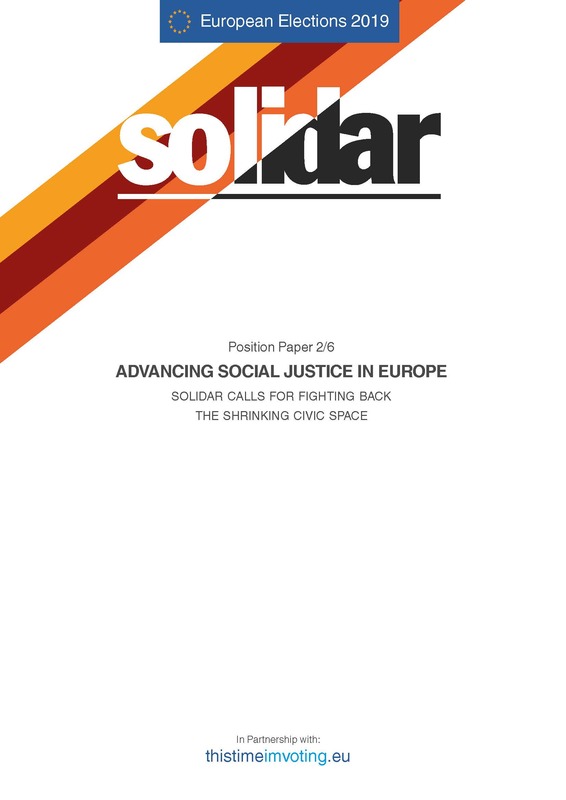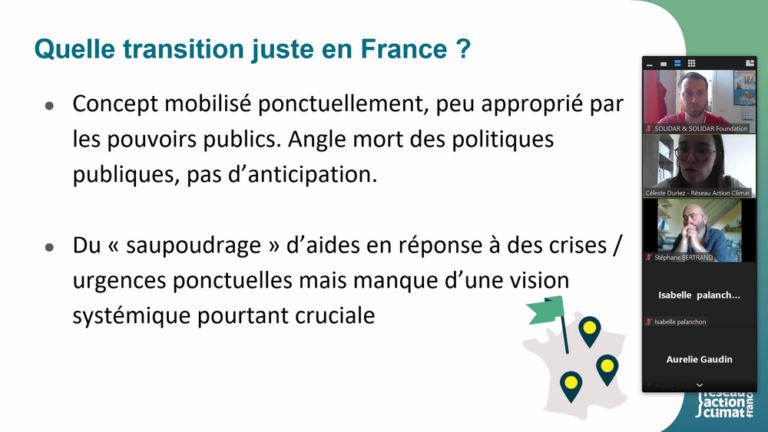Promoting a Just Transition in Europe and Worldwide: How Civil Society and Trade Unions are Driving the Change
June 12, 2021
The study “Promoting a Just Transition in Europe and Worldwide: How Civil Society and Trade Unions are Driving the Change” stems from SOLIDAR’s growing interest in engaging with the topic of ensuring a socially Just Transition to climate neutrality. At the end of 2020, the SOLIDAR network developed a new multiannual strategy for the platform, one that aims to place social justice and Just Transition at the centre of European and international policies and recovery strategies. Then, in the framework of its renewed mission, SOLIDAR kicked-off a mapping exercise that attempted to identify the key concepts, main policies and existing initiatives linked to a Just Transition. This publication is a result and a consequence of that exercise.
Early on in our analysis, it became evident that the contribution of the civil society sector, in particular social NGOs, to climate action and to ensuring a Just Transition to climate neutrality is not sufficiently taken into consideration in the literature on the matter. Social NGOs’ views on climate and environmental issues are even less frequently the object of decision-makers’ attention. Policies and strategies for a green transition are considered a prerogative of environmental and climate actors, and the latter are often excluded from discussions on social matters. In other words, environmental, climate and social NGOs are placed in a system of silos that hinders meaningful exchanges among them and prevents from contributing to decisions on a socially Just green Transition in Europe and worldwide.
This study aims to challenge this system of silos by providing examples of contributions made by trade unions and social movements to the creation of environmentally sustainable, fair and inclusive societies. By adopting positive behaviours, organising life-saving support to communities across the world, sharing their knowledge and practices, researching issues, promoting sustainable development models and much more, civil society organisations all over the world combine and reconciliate environmental and social objectives,
this way proving that fighting for both climate and social justice is possible.
This publication is addressed to both decision-makers and members of civil society. The first section consists of a snapshot of the European Union policies connected to a Just Transition and aims to inform members and partners of SOLIDAR who wish to engage in EU- and national-level decision-making processes. The second part showcases initiatives designed and implemented by members and partners of SOLIDAR at a local, national, European and international level. Our hope is that organisations will feel inspired by the projects and activities presented in this publication and decision-makers will start to regard social NGOs as relevant stakeholders in the debate around a Just Transition and its implementation.
The list of organisations whose work is showcased in this study consists mainly of social NGOs and trade unions. They operate in Serbia, Italy, Spain, Sweden, as well
as at European and international level. The study also contains an example of how environmental NGOs are adding a social component to their work and focusing on a
socially Just Transition. This list is far from being exhaustive and there are many more social actors working for a Just Transition than the ones we mentioned here. This study
is less of a comprehensive coverage and more of a celebration of the diversity of activities, projects and initiatives for sustainable development that social organisations
undertake.
We would like to thank the following organisations for their contribution to the study: ARCI, La Liga Española de la Educación y la Cultura Popular, IDC, OPC, ETUC, FEPS, PLS, WWF European Policy Office, MPDL, APHEDA, Solidar Suisse, ACPP and ARCS.





